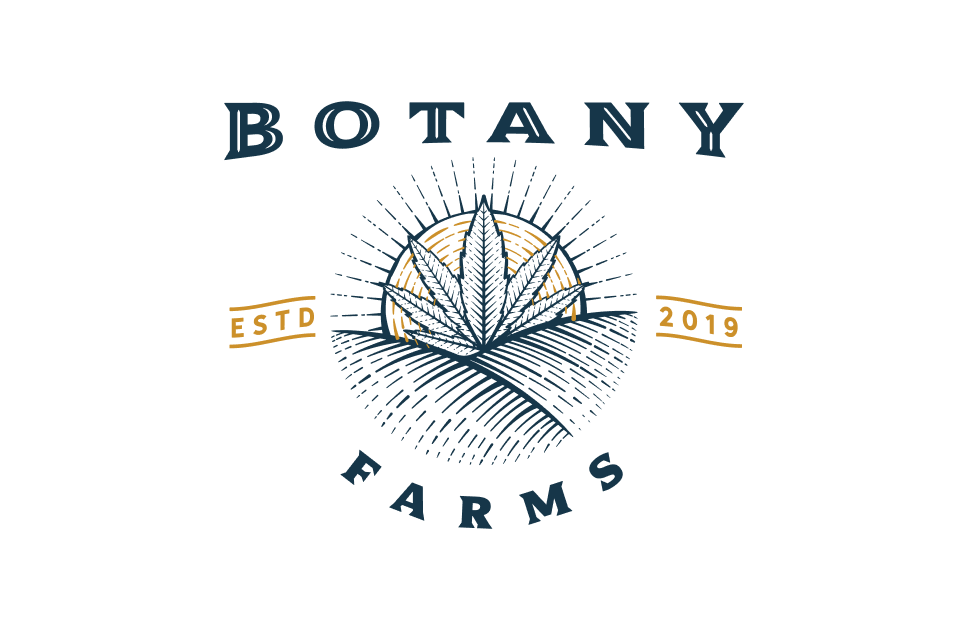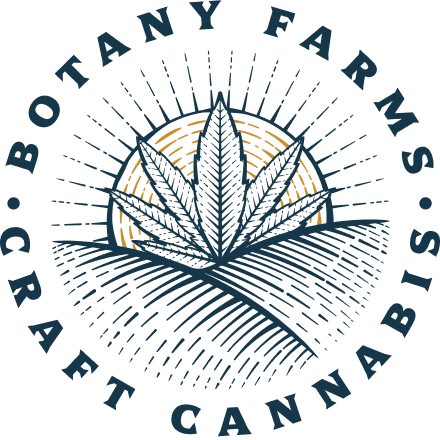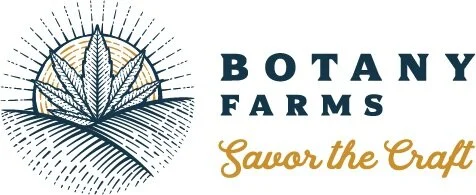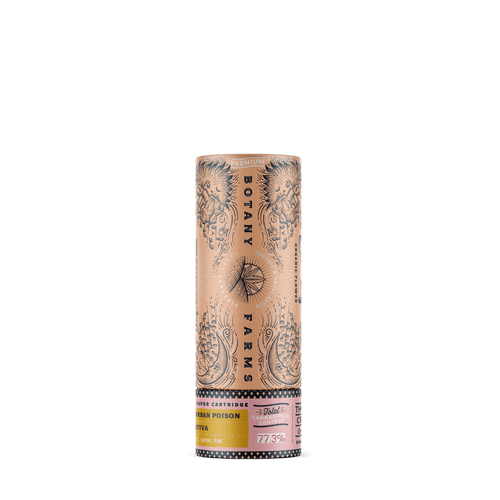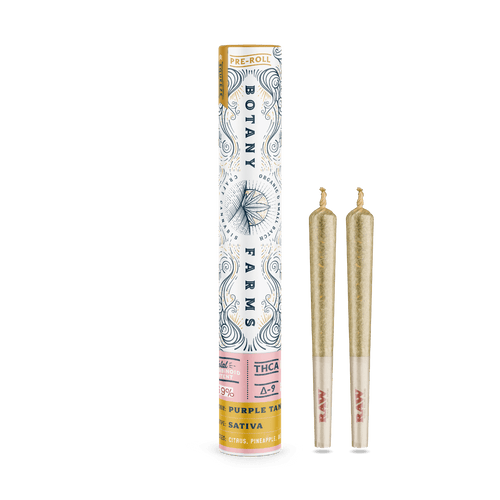THCA North Carolina
If you wander into a North Carolina hemp field partnered with Botany Farms, you’ll find more than plants nudging toward the sun. Here, tradition and meticulous care merge—sunshine filters through low leaves, soil is rich with memory, and every flower is slow-grown until its nuances are fully realized. A deeper commitment threads through each stage: from clean, chemical-free cultivation to hand-trimmed harvests, where the quiet personality of THCA flower is patiently coaxed forth.
Check out our Blog
Where THCA In North Carolina Stands Legally
The legality of THCA in North Carolina is shaped by federal hemp policy, evolving interpretations of state law, and the plant’s unique chemistry. While the regulatory language might seem dense at first glance, everyday buyers, growers, and retailers are helping shape a more accessible and transparent landscape, one harvest at a time.
How Federal Law Affects THCA Flower In North Carolina
Under the 2018 Farm Bill, hemp and hemp-derived products became federally legal, as long as their ∆9-THC content stays below 0.3% by dry weight. THCA, the raw cannabinoid found in fresh hemp flower, fits into this framework in a way that feels both promising and a bit complex.
In its natural state, THCA is non-psychoactive as it doesn’t bind easily to receptors in the brain, meaning it won’t produce a high unless it’s heated. When vaporized, smoked, or baked, it transforms through decarboxylation into THC, the compound known for its euphoric effects. Since THCA flower starts within the legal THC limit but can convert into a more potent form when used, the law emphasizes what the flower is before it’s consumed, not what it might become. That distinction shapes how THCA flower in North Carolina is grown, tested, and sold.
Legal Status Of THCA Flower North Carolina Buyers Should Know
Across North Carolina, THCA flower is legally available to consumers, as long as it’s derived from hemp and contains less than 0.3% THC by dry weight. Many small-batch farms and retailers have embraced this model, using detailed lab testing to show that their products meet federal standards. These reports, known as Certificates of Analysis (COAs), give buyers clear insight into cannabinoid content and purity.
While North Carolina THCA laws currently follow federal guidelines, they remain open to change. Lawmakers across the U.S. continue to review how cannabinoids are classified and monitored. That’s why North Carolinians seeking THCA flower are encouraged to check for updated lab results and remain informed about state-level updates.
Why North Carolinians Are Using THCA Flower For Stress, Sleep, And Daily Relief
Across the foothills and farmland of North Carolina, THCA flower has become more than a curiosity. For many, it’s a natural way to ease tension, reset after long days, and reclaim a sense of balance, without the intensity of a high. Let’s discuss some of the benefits of using THCA flower.
A Calm Companion For Daily Stress And Anxious Moments
Stress doesn’t always wait for the weekend. Between commutes, caretaking, and the push-pull of everyday demands, many North Carolinians are seeking relief. Users often describe the experience as a soft exhale: tension rolls off the shoulders, the pace of thought slows, and there’s room to breathe. For those sensitive to stronger cannabis products, THCA’s gentle interaction with the body feels less overwhelming and more compatible with a steady routine.
A Gentle Nudge Toward Better Sleep
Sleepless nights tend to arrive quietly—restlessness, replaying to-do lists, or an inability to fully relax before bed. That’s where THCA flower North Carolina users are finding a new kind of bedtime ritual. When heated, THCA converts into THC, unlocking more noticeable body relaxation. Paired with an evening walk, a cup of tea, or time away from screens, a small dose of North Carolina THCA may help ease the body into stillness. For those trying to restore healthier sleep patterns, this plant-based option feels grounding and approachable.
Relief For Physical Discomfort And Inflammation
Pain doesn’t always announce itself loudly. Sometimes it’s the dull ache in your knees after standing all day. Other times, it’s stiffness in your neck from long hours at a desk or strain from outdoor labor. THCA flower may help soften those sensations without causing grogginess or disconnection.
Preliminary research and anecdotal reports suggest that THCA may carry anti-inflammatory properties, which can be especially valuable for users managing recurring soreness, joint pain, or minor swelling. While formal studies are ongoing, daily users often report feeling steadier and more at ease after incorporating THCA into their self-care routines.
A Transparent Choice In A Crowded Market
Part of THCA’s growing appeal lies in its transparency. With rising concern over fillers, synthetics, and mystery blends, many North Carolinians are gravitating toward THCA flower from North Carolina growers who prioritize clean cultivation and third-party lab testing.
Thca Vs. Thc: What North Carolina Buyers Should Know Before They Light Up
THCA and THC may share a genetic root, but their effects, legality, and role in wellness vary in important ways. For shoppers in North Carolina comparing cannabinoid options, understanding how these two compounds differ can help shape more intentional, informed decisions. Here’s what sets them apart:
- THCA Flower Can Be Legally Sold In North Carolina: As long as the product contains less than 0.3% delta-9 THC by dry weight, THCA flower North Carolina retailers are allowed to sell it under the federal hemp guidelines.
- The Experience Starts Softer With THCA: Because THCA is often smoked or vaporized, users report effects that feel smoother and more gradual than traditional THC products. This gentler onset can be appealing for those easing into cannabis use or managing symptoms like stress or tension after a long workday.
- Both Cannabinoids Interact With The Body’s Endocannabinoid System: While THC binds more directly to CB1 receptors in the brain, THCA appears to affect inflammation and discomfort through other pathways. Some users prefer THCA for its potential in calming physical discomfort without disrupting their mental clarity.
- Intent Matters When Choosing Between Them: Those seeking deeper sleep, body relief, or a wind-down session may lean toward THCA flower. Others looking for recreational uplift may prefer THC-dominant products like Sativa or Indica. In North Carolina, THCA provides a compliant, accessible option that still taps into the plant’s deeper potential.
What To Look For When Buying THCA Flower In North Carolina
Stepping into the world of THCA flower means more than choosing a strain—it’s about finding a product that reflects care, clarity, and craftsmanship. For North Carolina residents exploring their options, paying attention to key quality markers can make the difference between a trusted purchase and a disappointing one. Here's what matters most when selecting flower that fits into your lifestyle and wellness goals.
Third-Party Lab Results You Can Read
A reliable source always leads with transparency. Before purchasing THCA flower in North Carolina, look for clear batch-specific lab reports, also known as Certificates of Analysis (COAs). These reports confirm cannabinoid content, and more importantly, screen for things you don’t want—pesticides, residual solvents, and heavy metals. Trusted brands like Botany Farms make their lab results easy to access, so you're not left guessing.
Clean Cultivation From Soil To Harvest
How your flower is grown directly affects how it smells, tastes, and feels in your body. Seek out growers who use pesticide-free and fungicide-free cultivation methods. Bonus points for micro-farms and small-batch harvests, which usually come with more traceability and care. High-quality North Carolina THCA flower often carries visible signs of craftsmanship: hand-trimmed buds, slow-curing methods, and resinous trichomes that sparkle in the light. These visual cues signal freshness, not flashiness, and point to a product grown skillfully.
Aroma And Texture That Reflect Real Freshness
Let your senses lead the way. Every strain should offer a distinctive scent—sometimes citrusy or earthy, sometimes pine-forward with a grassy backnote. A gentle squeeze should release a full-bodied aroma, not a musty or dusty one. Fresh THCA flower North Carolina buyers can trust usually feels sticky but not soggy, springy but not brittle.
How To Use THCA Flower For Daily Balance And Everyday Relief
THCA flower can be a steady companion for those looking to relax, reset, or regain physical comfort. Whether you're easing into cannabis or searching for a smoother ritual, these everyday use cases highlight how North Carolina THCA fits naturally into your routine.
- Start the morning with a light session for clarity and calm: A gentle inhale from a vaporizer or pre-roll can take the edge off racing thoughts and help you move into your day with more focus.
- Pause in the afternoon to ease physical tension: Hours spent on your feet or hunched over a desk often show up as neck aches, tight shoulders, or tired legs. A short break with THCA flower North Carolina users trust may help soften those sensations.
- Unwind in the evening with a mindful wind-down: After dinner, some choose a small dose to transition out of stress and into rest. Combined with a book, tea, or light stretching, THCA’s gentle transformation into THC can encourage deeper body relaxation and make space for stillness.
- Build a consistent routine for ongoing relief: For those managing inflammation, soreness, or high stress levels, small regular sessions may offer cumulative benefits. By keeping track of strains and timing, you can find what feels most steadying for your body.
- Let the sensory experience guide your rhythm: From citrusy brightness to earthy calm, the aroma and flavor of each strain offer more than taste—they help you tune into what your body needs that day.
Read more:
Sources:
1. ScienceDirect. Tetrahydrocannabinolic acid - an overview. In Topics in medicine and dentistry. https://www.sciencedirect.com/topics/medicine-and-dentistry/tetrahydrocannabinolic-acid
2. https://www.frontiersin.org/journals/pharmacology/articles/10.3389/fphar.2018.01259/full
3. National Center for Biotechnology Information. Cannabis (Marijuana) and Cannabinoids: What You Need To Know. In Cannabis and Cannabinoids Research Report. https://www.ncbi.nlm.nih.gov/books/NBK563174/
4. U.S. Congress. (2018). Agriculture Improvement Act of 2018, H.R. 2, 115th Cong. Public Law No. 115-334. https://www.congress.gov/bill/115th-congress/house-bill/2
5. North Carolina Cannabis Information Portal. Cannabis laws. NorthCarolinaStateCannabis.org. https://northcarolinastatecannabis.org/laws
Frequently Asked Questions
Yes! THCA transforms into THC when exposed to heat through a process called decarboxylation. This is why raw THCA found in hemp or cannabis flower doesn’t create intoxicating effects, but can become psychoactive when smoked, vaporized, or cooked.
Currently, North Carolina follows federal guidelines under the 2018 Farm Bill. As long as the product’s THC content remains under 0.3% by dry weight, there are no explicit state-level possession limits for THCA hemp products. However, it’s important to source from reputable brands that provide lab results—peace of mind grows best in transparency.
THCA flower and products derived from hemp with less than 0.3% THC by dry weight are legal to possess and use in North Carolina. State law echoes federal hemp policy, but the landscape is evolving, and it always pays to check the latest legislation and rely on brands with traceable, compliant products.
Emerging research and early anecdotal evidence suggest that THCA may have promising benefits. These include anti-inflammatory, neuroprotective, and antiemetic properties. While definitive medical guidance is still evolving, many consumers report gentle relief and holistic support when using THCA products.
North Carolina does not currently operate a comprehensive medical cannabis program. A limited law permits CBD oil for intractable epilepsy, but broader access to medical cannabis, including high-THC products, remains unavailable under state law.
Licensed farmers may cultivate hemp with compliant THC levels, and THCA-rich hemp varieties have become especially prized among local micro-farms. For individuals, home cultivation remains prohibited. The path from seed to flower is best left, for now, to certified growers operating under state and federal licensing—the artistry of cultivation rests in experienced hands.
